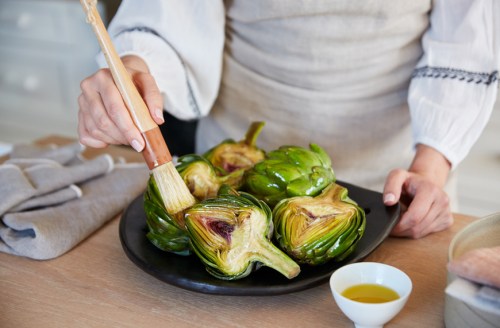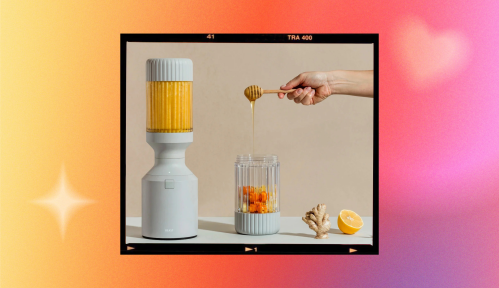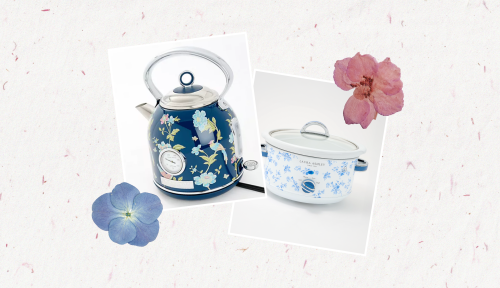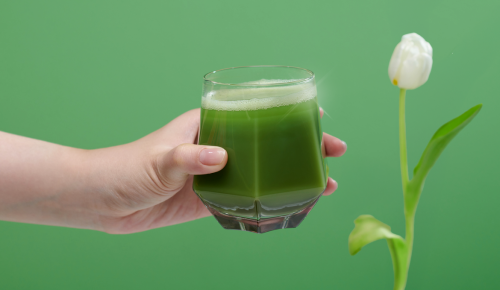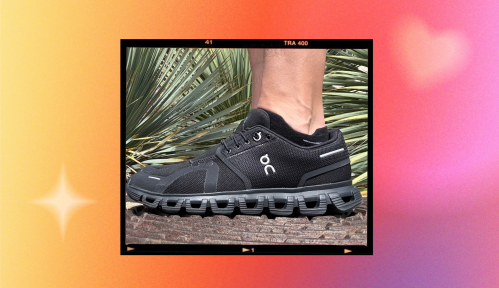Our editors independently select these products. Making a purchase through our links may earn Well+Good a commission
Shopping for olive oils can be tricky. With so many different options on store shelves, it can be hard to know which one to choose. However, according to Amy Gorin, RDN, a plant-based registered dietitian in the New York City area, there are a few indicators that can help make finding the best olive oil for health—not to mention for the sake of your culinary endeavors—a bit better.
Experts in This Article
registered dietitian nutritionist and owner of Amy Gorin Nutrition
master blender and level two olive oil sommelier at Pasolivo
From reading the labels closely to buying extra-virgin olive oil whenever possible, we’re sharing the checklist you need the next time you’re shopping for olive oils. Plus, to make the process even easier, we’ve vetted a few options that offer plenty of benefits for overall well-being (that taste great, too!).
The best olive oils for health, at a glance:
- Best overall: California Olive Ranch Everyday Extra Virgin Olive Oil, $26
- Best flavor: Pasolivo Extra Virgin Olive Oil, $50
- Best for gifting: Brightland Cold-Pressed Extra Virgin Olive Oil, $37
- Best affordability: California Olive Ranch Everyday Extra Virgin Olive Oil, $14
- Best packaging: Gaea Fresh Greek Extra Virgin Olive Oil, $25
- Best for drizzling: McEvoy Ranch Traditional Blend Organic Extra Virgin Olive Oil, $39
- Best chef-approved: Corto Truly 100% Extra Virgin Olive Oil, $25
- Best for cooking: Cobram Estate California Select Extra Virgin Olive Oil, $23
- Best for everyday cooking: Kirkland Signature Organic Extra Virgin Olive Oil, $22
- Best organic: Bariani Olive Extra Virgin Olive Oil, $23
- Best woman-owned: The Furies Organic Extra Virgin Greek Olive Oil, $31
Health benefits of olive oil
By now you’re likely well aware of all the impressive health benefits of olive oil, but we’ll take any chance we can to highlight the golden child of our pantry. For starters, it’s a powerful source of antioxidants—particularly, oleocanthal and oleic acid—that help lower inflammation in the body1. Olive oil is also linked to supporting heart health, thanks to its high monounsaturated fat content. A 2022 meta-analysis found that the consumption of olive oil is linked to a reduced risk of cardiovascular disease2; an older 2014 study found that consuming olive oil regularly can help lower the risk for cardiovascular disease by 48 percent3. Olive oil consumption has also been linked to supporting cognitive health by improving memory4 and potentially protecting against developing type 2 diabetes5.
Which is the healthiest olive oil?
Gorin says consuming extra-virgin olive oil (aka, EVOO) is the best, healthiest way to reap the benefits of olive oil. “Extra virgin olive oil is the highest quality olive oil you can buy. It has excellent flavor and odor, and a free fatty acid content,” she says. Olive oil experts also agree EVOO is likely the most regulated option that’s closely examined for quality before hitting the market, but we’ll touch more on that ahead.
How to tell if olive oil is high quality
1. It’s extra virgin olive oil
One of the best indicators of good-quality olive oil is that it’s EVOO, professional oleologist David Neuman previously shared with Well+Good. “Fake olive oil was an issue many decades ago when some unscrupulous producers cut olive oil—not extra virgin—with seed or nut oils to make extra profit,” he said. Meanwhile, all EVOO must meet specific qualifications to receive the “extra virgin” title.
Marisa Bloch Gaytan, a master blender and level two olive oil sommelier of California-based olive oil company, Pasolivo, adds that you should always take a close look at what’s on the label. “Some oils will list extra virgin on the label when they are not. It’s important to buy from a source that gets certified extra-virgin by a qualified organization,” she says. However, she points out that if the certification is not listed on the bottle, you can visit the council websites, like the California Olive Oil Council or International Olive Oil Council, and find a list of certified oils.
2. It comes in dark packaging
Gaytan says EVOO bottled in dark packaging can help prolong its health benefits and freshness. “We paint our bottles black to completely block out the UV rays. Even dark glass packaging can let light in, so something that completely blocks it out is best,” Gaytan says. The delicate, healthy fats in olive oil are sensitive to heat and light; thus, dark-colored bottles help prolong their shelf life.
3. It has a strong smell
Gaytan says the stronger the smell, the better. “Olive oils should have a pretty strong smell. Whether it’s green and grassy or more ripe and fruity, you should be picking up wonderful aromas from olive oil. If you do not smell much of anything, that is not a good sign,” she explains. So, make sure to take a nice long whiff before you add the oil to your dish.
4. It tickles your throat
According to Gaytan, EVOO should have a nice bitterness and pungency to it. “Bitterness is what you want to taste on your tongue and the sides of your mouth, and the pungency is that tickle you will get in the back of your throat that makes you want to cough. The pungency is those polyphenols at work that give you the health benefits of olive oil,” she says.
5. It comes from a single source
Although there isn’t anything inherently wrong with olive oil blends, Gaytan suggests opting for single-source olive oils whenever possible. “Some oils will list that they are from Italy, Spain, and Greece. While that sounds really romantic, all that means is the oils had to travel from each of those places before they were blended, bottled, and then transported for sale. All of this transporting can affect the quality and integrity of the oil,” she says. You should also buy bottles based on their harvest or best-by date. According to her, the sweet spot is within two years of the harvest date.
The best olive oils for your health, according to experts
Best for Cooking
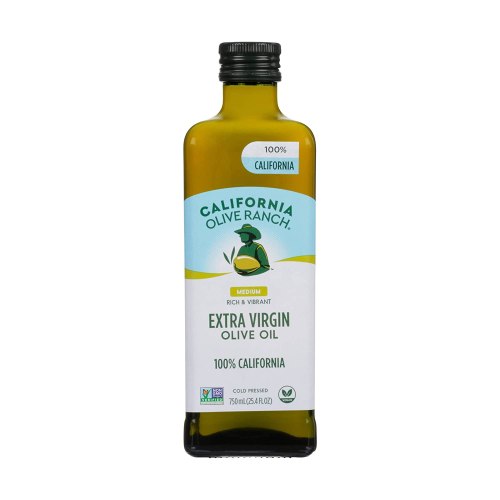
California Olive Ranch Everyday Extra Virgin Olive Oil — $26.00
This olive oil is made from 100-percent California olives and is said to have a “floral, buttery, and fruity aroma” with hints of green apple. Well+Good’s former senior food editor, Jessie Van Amburg, has used it in her kitchen for over a decade, and loves its flavor and versatility. The moderate price point makes it perfect for everyday use, and it’s one of the best olive oils available on Amazon. Just don’t forget to store it in a dark place since the green-tinted glass bottle can still be vulnerable to light. (P.S. olive oil is safe to cook with, with a rather high smoke point of around 320 to 460°F.)
Pros:
- Medium body
- Single source
- Cold pressed
Cons:
- Some customers say the top is prone to leaks
- Much more expensive than the brand’s global blend

Corto Truly 100% Extra Virgin Olive Oil — $25.00
Corto strives to make its process as eco-friendly as possible, from the packaging designs to its harvesting methods. The olive oil tastes so fresh due to being harvested at peak season and sent through an on-site mill. It comes highly recommended by pastry chefs for its quality and flavor (and senior food writer Maki Yazawa uses it in her kitchen).
Pros:
- Chef-approved
- Certified extra virgin by the California Olive Oil Council (COOC)
Cons:
- Some reviewers said their olive oil was older than expected
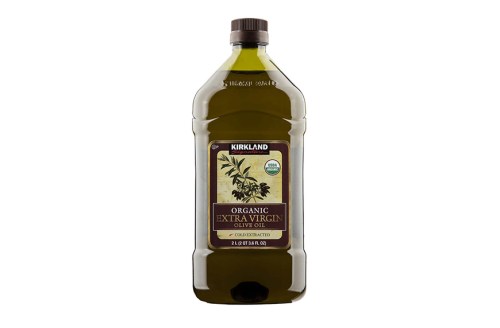
Kirkland Signature Organic Extra Virgin Olive Oil — $22.00
This cold-pressed extra-virgin olive oil is organic, kosher, and affordable. Not to mention, it’s pretty affordable, too for the amount that you get. The only downside is that you can only get it at Costco.
Pros:
- Affordability
- Organic
- Cold extracted
Cons:
- Difficulty using it before it spoils due to the large size
- Only available at Costco
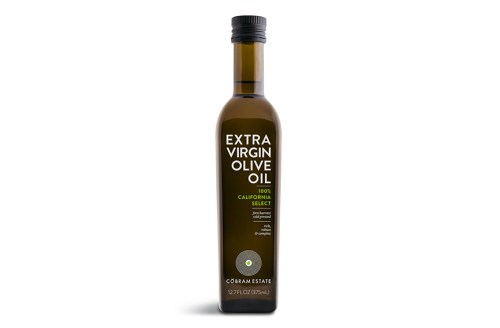
Cobram Estate California Select Extra Virgin Olive Oil — $23.00
This rich and flavorful organic olive oil comes straight from the Sacramento Valley in California. It’s said to be a great balance of bitter and peppery flavors. “The company makes an effort to prevent soil erosion and to naturally suppress weeds. It also uses solid byproducts as natural fertilizer,” says Gorin. Reviewers also love the pop-up spout inside the bottle—ideal if you want to drizzle a bit over your finished dish with more control and less spillage.
Pros:
- Cold pressed
- Pouring spout
- Award-winning
Cons:
- Some reviewers said their bottle leaked
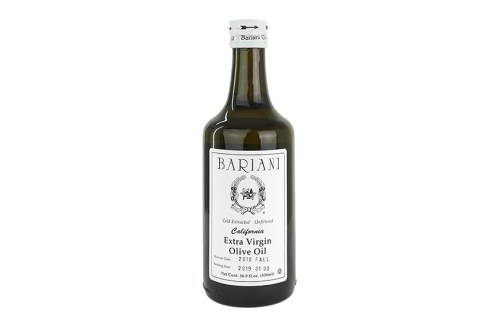
Bariani Olive Extra Virgin Olive Oil — $23.00
Bariani’s olive oil flavor is always a surprise, as it differs every year due to the company’s traditional extraction process. It’s organic, stone-crushed, and cold-filtered. We also love how the California-based company prioritizes sustainability through its packaging and waste management processes.
Pros:
- Organic
- Cold extracted
- Unfiltered
Cons:
- Strong flavor for certain dishes
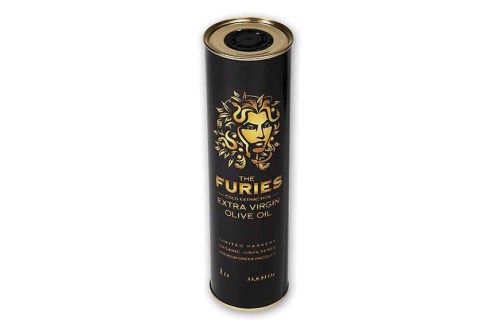
The Furies Organic Extra Virgin Greek Olive Oil — $31.00
This woman-owned and operated company only uses organic and fresh ingredients. Also cool: The olive oil is made from small, green, and raw olives that produce less oil—and the perk in that is that they have super-high levels of phytonutrients.
Pros:
- Woman-owned
- High concentration of phytonutrients
Cons:
- Limited distribution
- More expensive than other options on this list
Best for Drizzling

Pasolivo Extra Virgin Olive Oil — $50.00
Gaytan, of course, recommends Pasolivo’s extra virgin olive oil because all of the olives are hand-picked (helping prevent damage to the fruit and trees) and processed within 24 hours for maximum freshness. The result: a delicious, award-winning olive oil that is well worth the price if you’re all about the EVOO.
Pros:
- Hand-picked olives
- On-site milling
Cons:
- Expensive
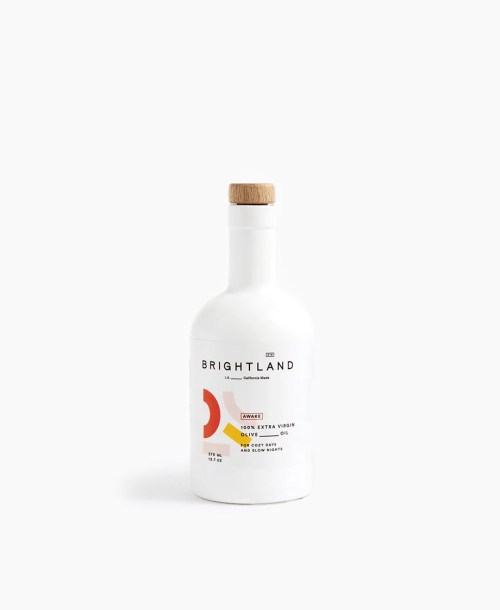
Brightland Cold-Pressed Extra Virgin Olive Oil — $37.00
Brightland is an AAPI-and-family-owned company. The brand uses Arbequina olives grown on a small family farm on California’s Central Coast, which is cold-pressed by a master miller within 90 minutes of harvest for freshness and flavor. This delicately flavored olive oil is perfect for drizzling over dishes like fish or salads and is a clear winner between the canola versus olive oil debate.
Pros:
- Minority-owned
- Mild, delicious flavor
Cons:
- More expensive than other options on this list
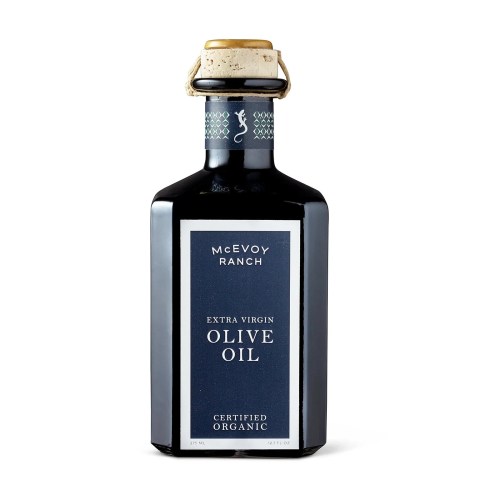
McEvoy Ranch Traditional Blend Organic Extra Virgin Olive Oil — $39.00
The award-winning olive oil is certified organic and has a few prominent flavors you may taste in the mix: raw artichoke, slight green almond, tropical fruit, and green olive. Also, it comes in the perfect olive oil bottle size to buy, which is one of the best ways to preserve the liquid’s freshness if you live in a household that won’t use it quickly.
Pros:
- Comes in various sizes
- Certified organic
Cons:
- Expensive
Most Affordable
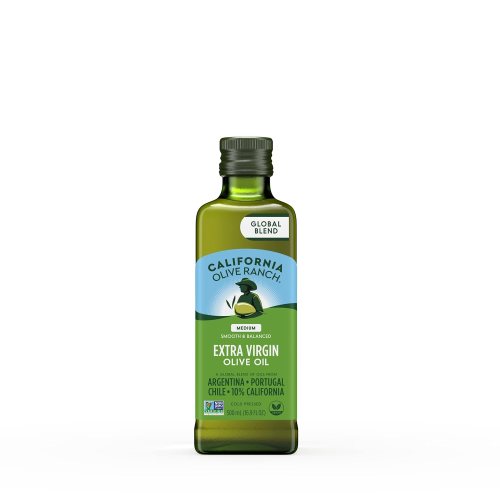
California Olive Ranch Everyday Extra Virgin Olive Oil — $14.00
This blend olive oil is best for everyday cooking due to its versatile flavor profile that pairs well with just about any dish and affordability. Just note that it’s a blend of olives from various regions rather than sourced entirely from one area or country.
Pros:
- Affordability
- High-quality blend
Cons:
- Not single source
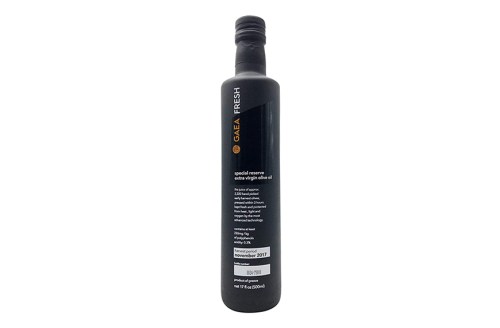
Gaea Fresh Greek Extra Virgin Olive Oil — $25.00
Gorin loves Gaea because of the extra steps the brand takes to help out the planet. “This brand of olive oil makes a commitment to measuring and counterbalancing carbon emissions of its olive oil production,” she says. “Its extra-virgin olive oils are certified as carbon neutral.” Doesn’t hurt that it’s delicious and affordable, too.
Pros:
- Environmentally conscious
- Hand-picked olives
- Versatile and pairs well with many foods
Cons:
- Expires quickly
How to store olive oil
Gaytan says the delicate fats in olive oil are sensitive to extreme conditions. The olive oil sommelier recommends storing olive oil in a dark, cool place, like a cupboard. Don’t put your olive oil in the fridge, she adds—cool temperatures can cause the oil to solidify, which can break down its natural compounds. And avoid storing oil near the stove or a window where it can be exposed to too much constant light and heat.
These are the benefits of olive oil you should know about:
Lucas, Lisa et al. “Molecular mechanisms of inflammation. Anti-inflammatory benefits of virgin olive oil and the phenolic compound oleocanthal.” Current pharmaceutical design vol. 17,8 (2011): 754-68. doi:10.2174/138161211795428911
↩︎Xia, Meng et al. “Olive oil consumption and risk of cardiovascular disease and all-cause mortality: A meta-analysis of prospective cohort studies.” Frontiers in nutrition vol. 9 1041203. 18 Oct. 2022, doi:10.3389/fnut.2022.1041203
↩︎Guasch-Ferré, Marta et al. “Olive oil intake and risk of cardiovascular disease and mortality in the PREDIMED Study.” BMC medicine vol. 12 78. 13 May. 2014, doi:10.1186/1741-7015-12-78
↩︎Farr, Susan A et al. “Extra virgin olive oil improves learning and memory in SAMP8 mice.” Journal of Alzheimer’s disease : JAD vol. 28,1 (2012): 81-92. doi:10.3233/JAD-2011-110662
↩︎Schwingshackl, L et al. “Olive oil in the prevention and management of type 2 diabetes mellitus: a systematic review and meta-analysis of cohort studies and intervention trials.” Nutrition & diabetes vol. 7,4 e262. 10 Apr. 2017, doi:10.1038/nutd.2017.12
↩︎
Sign up for the Well+Good SHOP Newsletter
Get exclusive deals on wellness, beauty, fitness, and food products that have been hand-picked by our editors.
Got it, you've been added to our email list.
